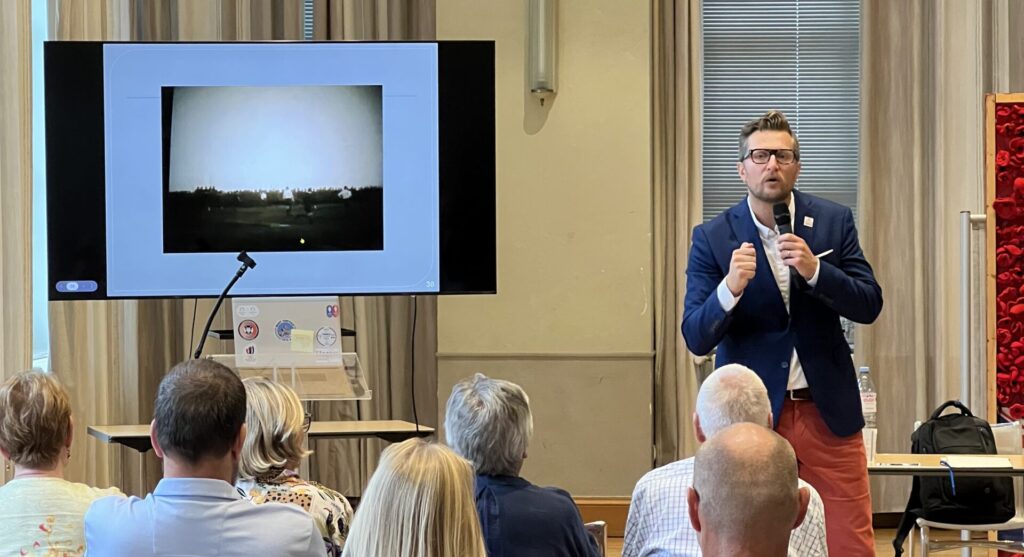In 1931, British General Sir Charles Harington declared that “leather” had won the Great War for Britain – not in uniforms, packs or other military equipment, but in footballs and boxing gloves.
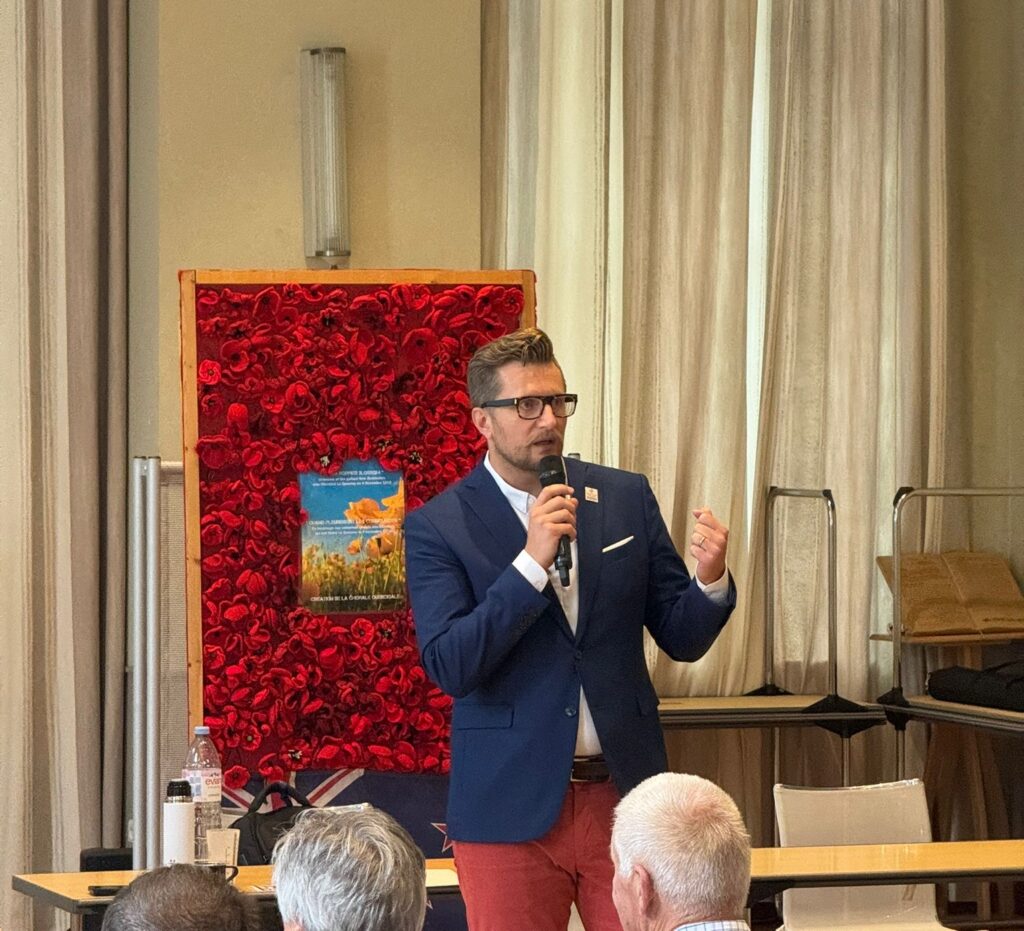
This month, Te Arawhata hosted its second public talk of the year at the Le Quesnoy Town Hall, this time focusing on the roles of sport in the First World War.
Pas de Sport, Pas de Victoire was presented by Arnaud Waquet, Director of the University of Lille’s Masters course in Sports Management and Strategy, who argued that without sport, an Allied victory may not have been possible.
Arnaud presented a range of wartime applications of sport, from recruitment and propaganda to fitness and morale-boosting. Attendees learnt how football fans were encouraged to follow their professional heroes into the forces, and how team sports provided some much-needed fun and respite for demoralised soldiers away from the front.
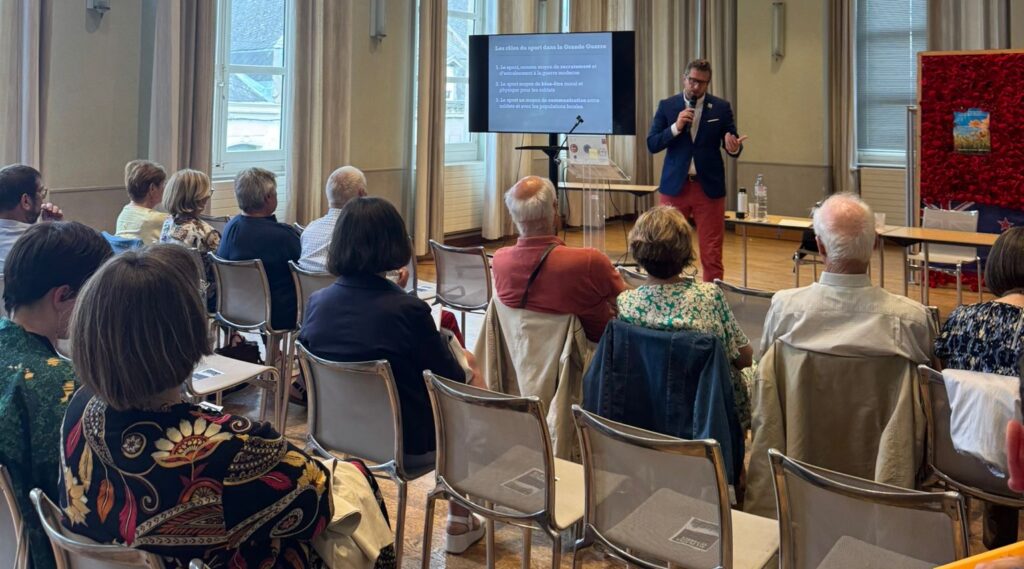
Arnaud explained that the global nature of the conflict created a melting pot for so many different cultures and languages on the Western Front. Sports like football, previously less common in continental Europe than in Britain, became an efficient means of communication and integration between the diverse Allied troops and the local French and Belgian populations
Arnaud’s engaging and passionate presentation was the first of many under a new partnership between the Museum and the University of Lille. The next conférence is set to focus on the long-standing rugby rivalry between France and New Zealand and will take place in September.
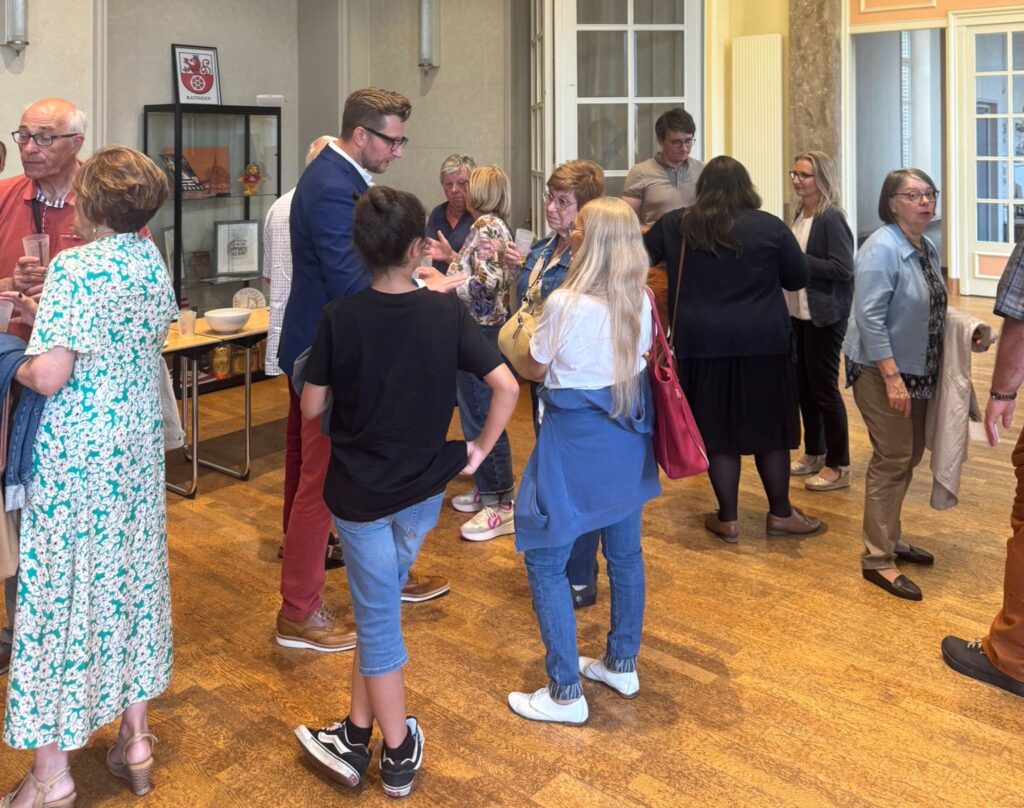
Presentations like Pas de Sport, Pas de Victoire fit within Te Arawhata’s mission of being an active member of the Le Quesnoy community. Far from being a static enclave for Kiwi visitors, Te Arawhata is designed to engage people from all over the world, including within the walls of this special town.
Accordingly, it’s no surprise that the universal language of sport has been at the forefront of the Museum’s programming since opening in October 2023. Te Arawhata’s inaugural temporary exhibition, From the Field to the Front, told the story of the All Blacks at war, while a new exhibition shedding light on the New Zealand Cyclist Corps opens in July as the 112th edition of the Tour de France takes over the North.
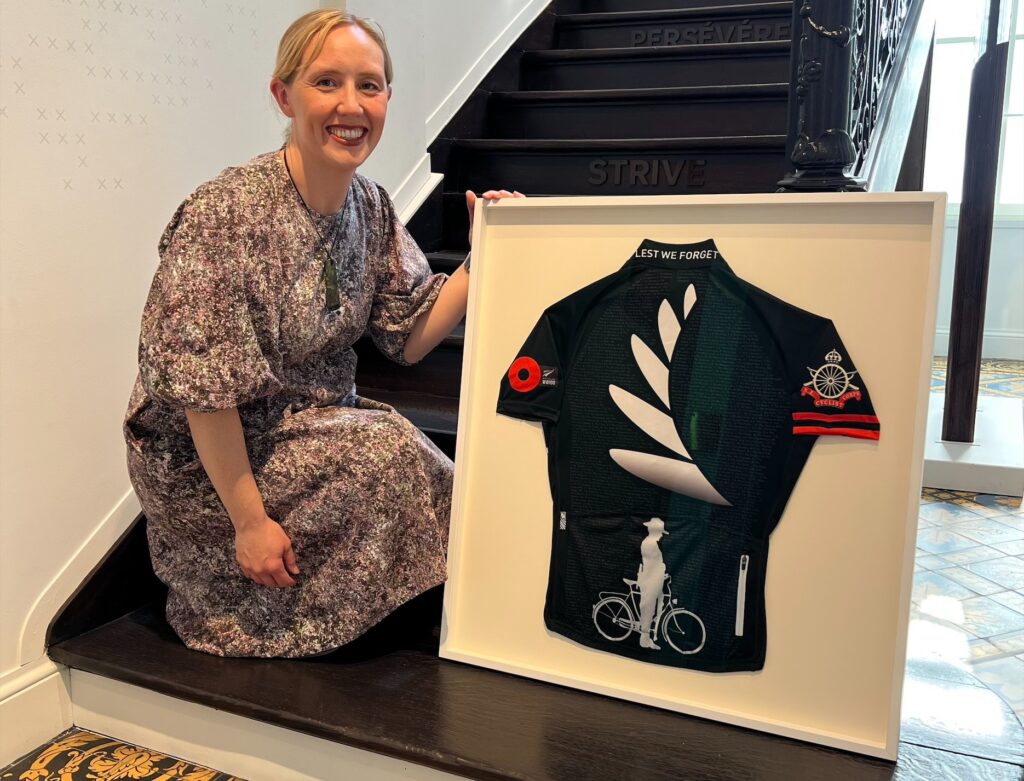
Also next month, Te Arawhata is hosting a screening for the final match of the France-New Zealand rugby series on 19 July – a clash of old foes on the field but close friends off it.
